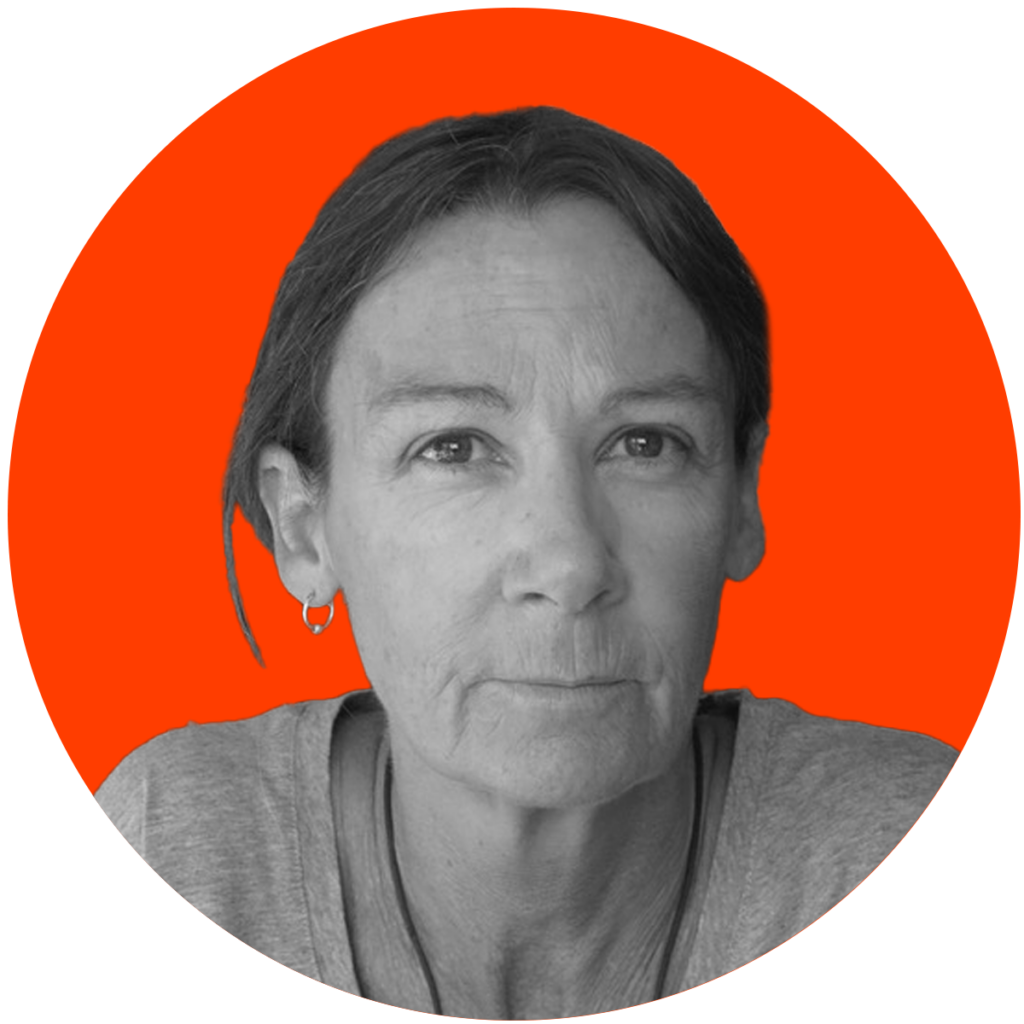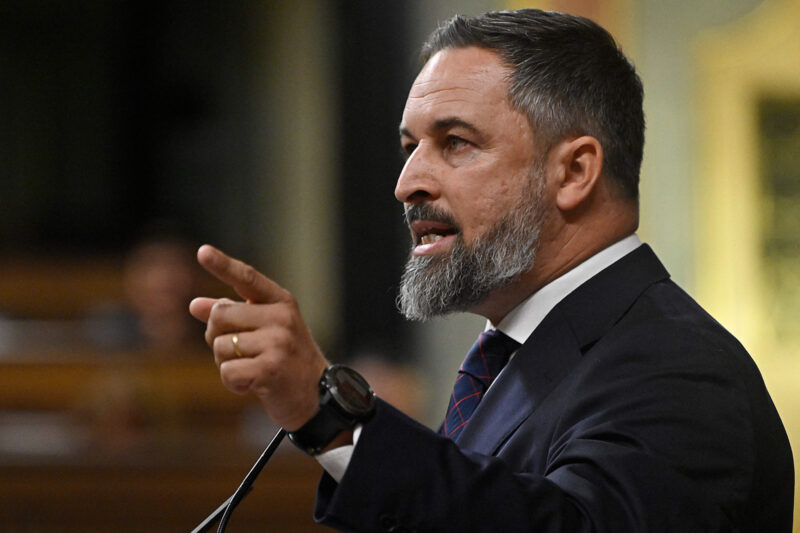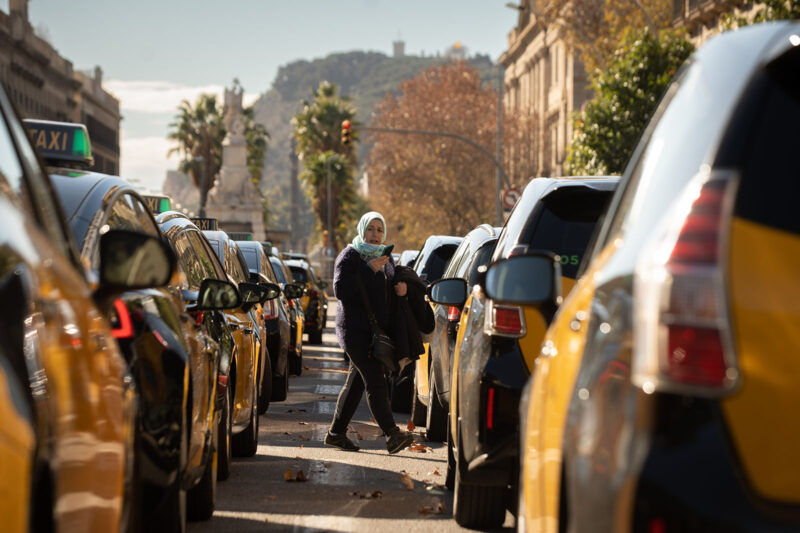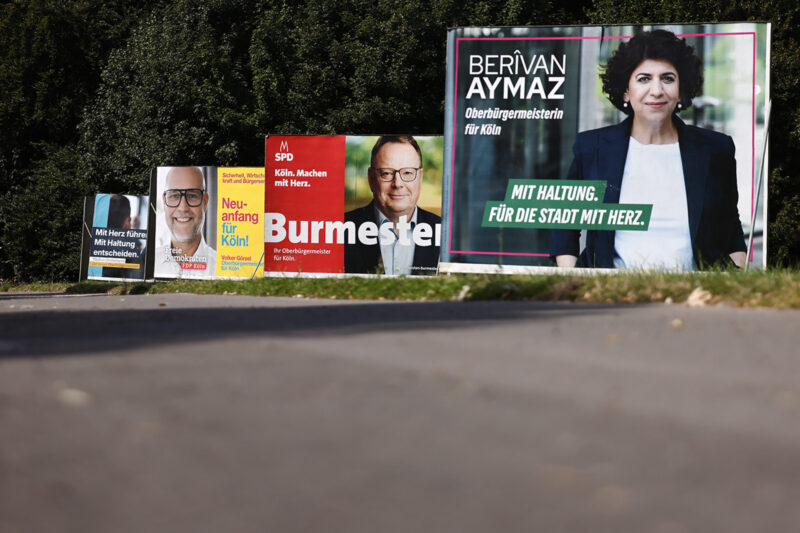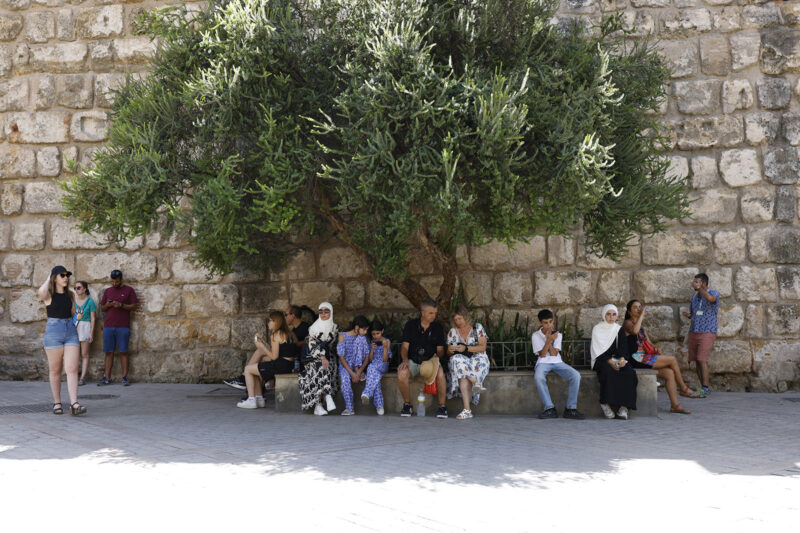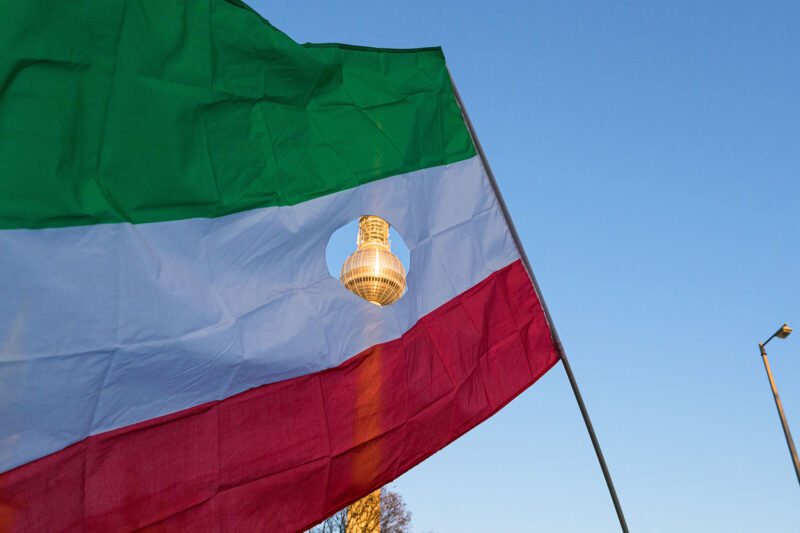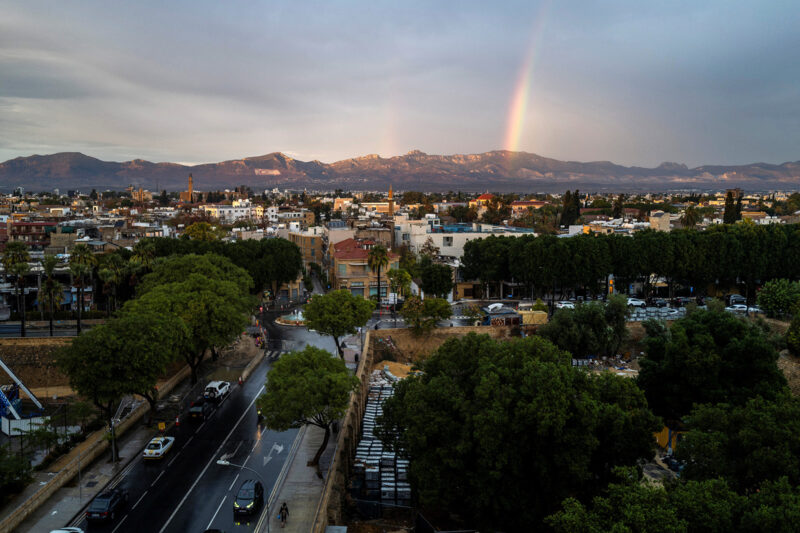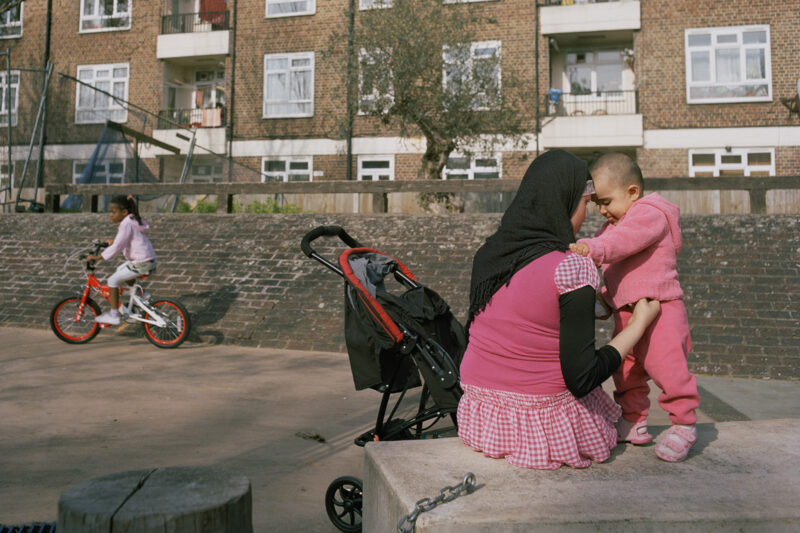Andalusia’s first Islamic political party looks to the Muslim rulers of its past for a socially just future
The Andalusi Party is making its debut in Spain’s upcoming regional elections and believes Islam offers the path to a more inclusive politics.
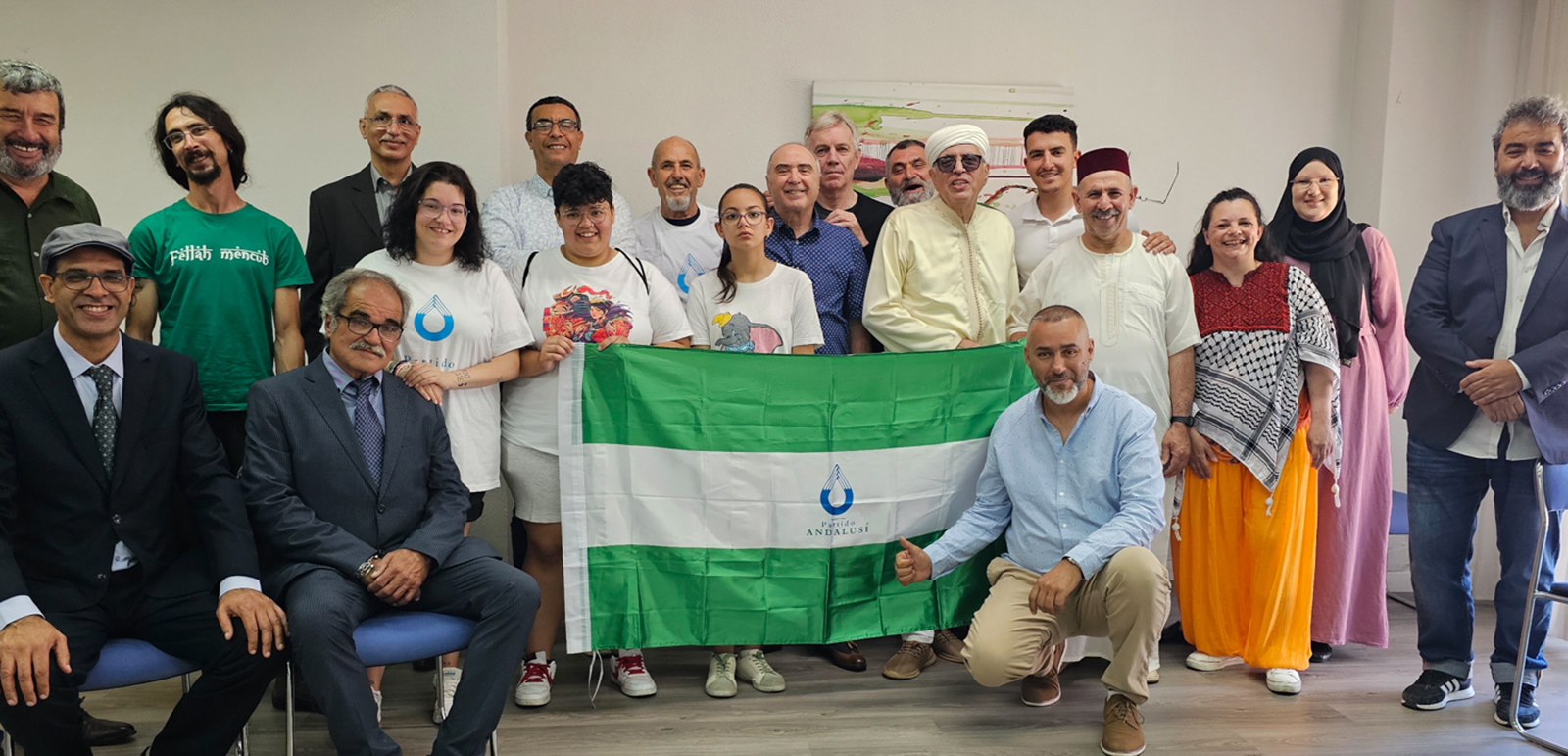
Rekindling the glory of the Islamic state of al-Andalus, a caliphate that at its zenith in the 10th century sprawled across the Iberian peninsula, is an unlikely mission, usually claimed by extremist groups. However, as Spain prepares for local and regional elections on May 28, a left-leaning and “inclusive” Islamic party has made the issue a central plank of its campaign.
The Islamic Andalusi Party is led by Dris Mohamed Amar, a former café owner from Melilla, the autonomous Spanish enclave in North Africa, who is passionate about fighting corruption. The party is making its political debut in Algeciras, a port town on the south coast of Andalusia where the conservative Popular Party has run the show since 2011. Sometimes referred to as “the gateway to Europe”, the town is home to a Muslim community that accounts for more than 5% of its population.
Spain has had one other Islamic political party in the past 40 years, the now defunct Prune (Party for the Renaissance and Union of Spain), whose ambitions outstripped its local gains. An offshoot of Prune, the Andalusi party has produced a manifesto that includes tackling evictions by restricting the powers of banks, boosting job opportunities by offering better training schemes and increasing the autonomous powers of a region whose fortunes Amar believes have been all but forgotten by mainstream Andalusian MPs sitting in Congress in Madrid.
Women’s issues are also high on the agenda. “We are strongly in favour of making women a reference point for society,” said Amar. “If they are left to one side because of circumstance, such as having a child before they’re ready, then we’re weakening our civilisation.”
At first glance, the Andalusi Party has much in common with the left-wing Podemos party, though Amar believes it has a longer-term mission. “Podemos was an escape valve for the social pressure that had built up from the 15M protest movement back in 2011,” he said, referring to the anti-austerity movement that swept across Spain towards the end of the country’s economic crisis. “We are not an escape valve. We are not about personal ambition. We want to focus on people, not money.”
Home to a population of 122,000 and 120 different nationalities, Algeciras is fertile ground on which to gain the support of marginalised voters. Although it is one of the richest cities in the province of Cadiz, with a relatively low crime rate, the significant migrant population has been excluded from the town’s prosperity. Unemployment in the town stands at almost 29%, one of the highest rates in Spain, and youth unemployment at more than 60%.
“Algeciras is a symbolic place to start,” Amar said. “In 711, the Muslims came to liberate this town. Now we want to do the same, freeing it from the oppression of the banks and imperialism. Later, we can stand in Malaga and other parts of Spain because the concept of the party is relevant not only nationally but also in the rest of Europe, despite being rooted in Andalusia. In the words of Blas Infante, the father of Andalusian nationalism, nowhere can be free until Andalusia is free.”
He insists, however, that the party’s ambitions fall short of demanding complete independence for Spain’s southernmost region, which has been under conservative rule for the past five years. Unlike the Basque or Catalan separatist movements that have led occasionally violent campaigns for independence, it seeks a greater degree of autonomy while expanding its regional borders to include the self-governing cities of Ceuta and Melilla.
“We want Spain to recognise the al-Andalus civilisation,” said Amar. “If it wasn’t for Andalusia, Spain wouldn’t exist and Europe wouldn’t have the culture it does. Al-Andalus was responsible for the evolution of science, philosophy and music, everything that validates us as human beings.”
‘We are targeting the younger generation, but not just Muslims. We believe most people who will vote for us won’t be Muslim’
Political analyst and Sevilla UNED professor Antonio Jesus Acevedo Blanco believes that any effort to revive the glorious past of Andalusia, Spain’s poorest region, is “a difficult mission to say the least. Currently, Andalusian politics have little presence on the national political stage”.
Acevedo also warns that assigning a religious identity to a political party is a mistake. “I consider it impossible for them to be successful electorally,” he said.
Amar is keen to clarify that the religious foundation of the party is intended to be inclusive rather than exclusionary. “The Islamic humanism angle is the party’s essence, but that doesn’t mean we want everyone to pray before a plenary session,” he said. “It’s not about imposing Islam and saying we’re in charge now. We just want everyone’s voices to be heard, whether they are Muslim or atheist.”
An electoral strategy relying solely on the Muslim vote would reap negligible results, he admits. Aside from its size, the community has a record of low voter turnout, according to Amar.
“Most of the Muslims here are from Morocco and there’s no voting culture among the 40 to 60 demographic. They are used to being excluded from the political sphere,” he said. “We are targeting the younger generation, but not just Muslims. We believe most people who will vote for us won’t be Muslim.”
However, broadening the Andalusi Party’s appeal beyond the Muslim minority is likely to mirror the challenges already faced by mainstream Muslim politicians, such as Mohammed Azahaf, who sat on the country’s governing Socialist party’s federal committee until last year.
Azahaf acknowledges a need to take neglected Muslim voters into account, but doesn’t believe any movement will succeed by branding itself as Islamic. “It limits the people who are going to vote for them,” he said. “We have to work with the political parties that already exist.”
Sabrin Araibi, a Muslim candidate running for Barcelona’s Socialist party, agrees.
“As a member of one of the mainstream parties, there’s a greater chance of having an impact,” she said. “By working within the established political structure, I’m already representing my community and am able to participate more fully politically.”
In Andalucia, Amar pointed out that, despite the Muslim tag, his party’s rank and file consists of an equal number of Muslims and Christians, a third of whom are Roma, as well as a 50/50 gender split regarding candidates.
“We are the most diverse party running,” he said. “There’s nothing more inclusive than Islam. There are democratic Christian parties with Muslims in them, so why not a Muslim party that has Christians?”
However progressive the intention, Carlos Echeverria, director of the Ceuta and Melilla Conservatory, warns of the potential dangers in referencing the idea of al-Andalus.
“I’m not comparing this party to al-Qaeda and Islamic State, who are constantly referring to al-Andalus as this idyllic Muslim world on the Iberian Peninsula,” he said. “But when the mythification of al-Andalus is invoked, it attracts radical elements.”
Yihad Sarasua, the treasurer of the Andalusi Party, offers a different perspective, suggesting that a Muslim political party promoting cultural exchange, harmonious co-existence and co-operation would provide an antidote to radicalisation.
“We set up the party so that the concept of al-Andalus was managed by us Andalusians, not hijacked by radical elements,” he said.
Acevedo predicts that any party running on a religious ticket has little hope of success at the ballot box. He believes their place in politics is as lobbyists and pressure groups highlighting specific issues across the region.
“The Muslim community has many issues that need addressing, such as the working conditions of fruit pickers in Huelva, greenhouse workers in Almeria, social conflict in Algeciras and religious concerns such as the possibility of worshipping in the mosque in Cordoba,” he said.
Amar and Yihad are keeping their expectations in check for now, convinced that while their programme may take time to gain momentum, it will eventually become a force for good for all of Andalusia. “We’re in no rush,” said Amar. “The polls put us at between around four and 11% of the vote. I’ll be happy with four.”
 Newsletter
Newsletter

